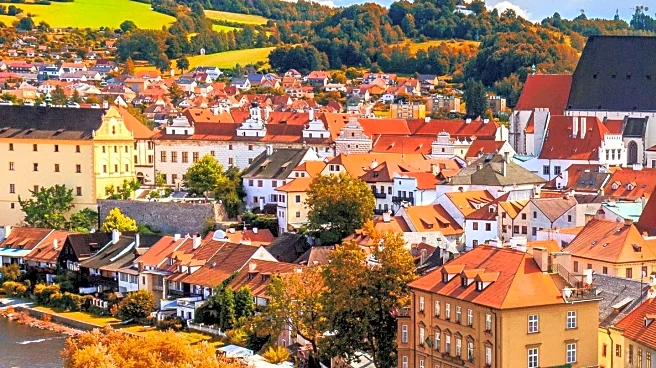What's Happening?
The European Travel Commission (ETC) has released insights indicating stable travel intentions among Europeans, with a growing interest in off-season travel to Southern Europe. The report shows that 73% of Europeans plan to travel between October 2025
and March 2026, with Southern Europe, particularly Spain, Italy, and France, seeing increased popularity. Despite financial constraints, travel remains a priority, with 82% of Europeans maintaining or increasing their travel budgets. The data suggests a shift towards immersive travel experiences, with a preference for single-destination trips.
Why It's Important?
The sustained interest in travel, particularly to Southern Europe, highlights the resilience of the tourism industry amid economic challenges. This trend can help mitigate seasonality, spreading visitor flows throughout the year and supporting local economies. The focus on immersive travel experiences reflects changing consumer preferences, emphasizing quality and value over frequency. This shift may encourage tourism businesses to adapt their offerings, developing tailored packages that enhance guest engagement and satisfaction. The findings also underscore the importance of strategic marketing and pricing strategies to attract travelers during off-peak seasons.
What's Next?
As travel intentions remain high, tourism stakeholders may focus on enhancing infrastructure and services to accommodate increased demand for off-season travel. The ETC and local tourism boards could collaborate on promotional campaigns that highlight the unique appeal of Southern destinations during cooler months. Businesses may explore innovative approaches to attract mature travelers, who show strong travel intentions, by offering experiences that cater to their preferences for quality and immersion. The industry may also monitor economic indicators and consumer sentiment to anticipate potential shifts in travel behavior and adjust strategies accordingly.
Beyond the Headlines
The growing demand for off-season travel reflects broader trends in consumer behavior, where travelers seek meaningful and sustainable experiences. This shift aligns with global efforts to promote responsible tourism, encouraging practices that minimize environmental impact and support local communities. The emphasis on single-destination travel suggests a move towards deeper cultural engagement, fostering cross-cultural understanding and appreciation. As the industry adapts to these changes, it may explore partnerships with local artisans and cultural institutions to enhance the authenticity and appeal of travel experiences.















